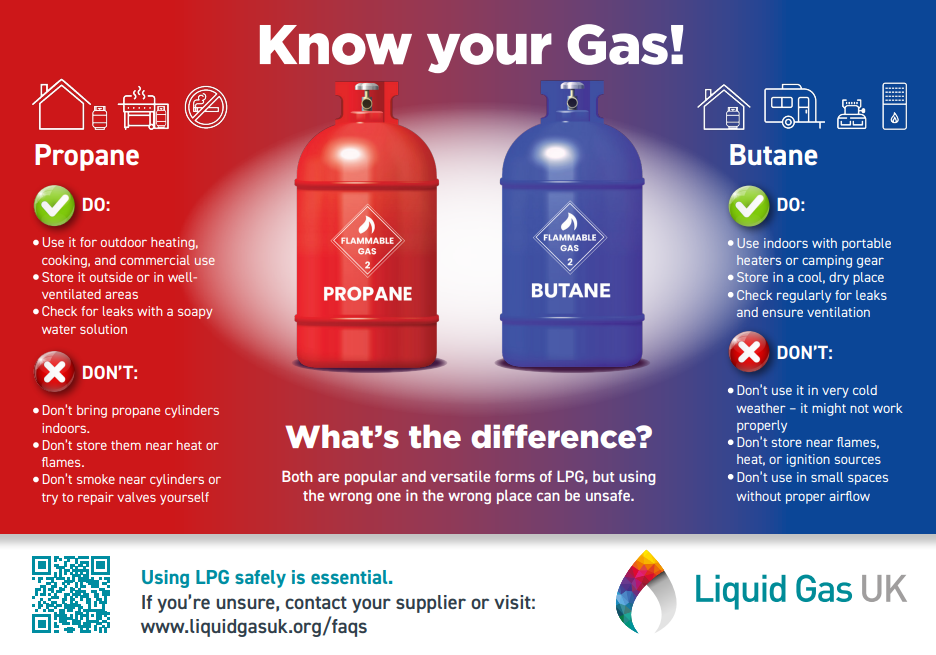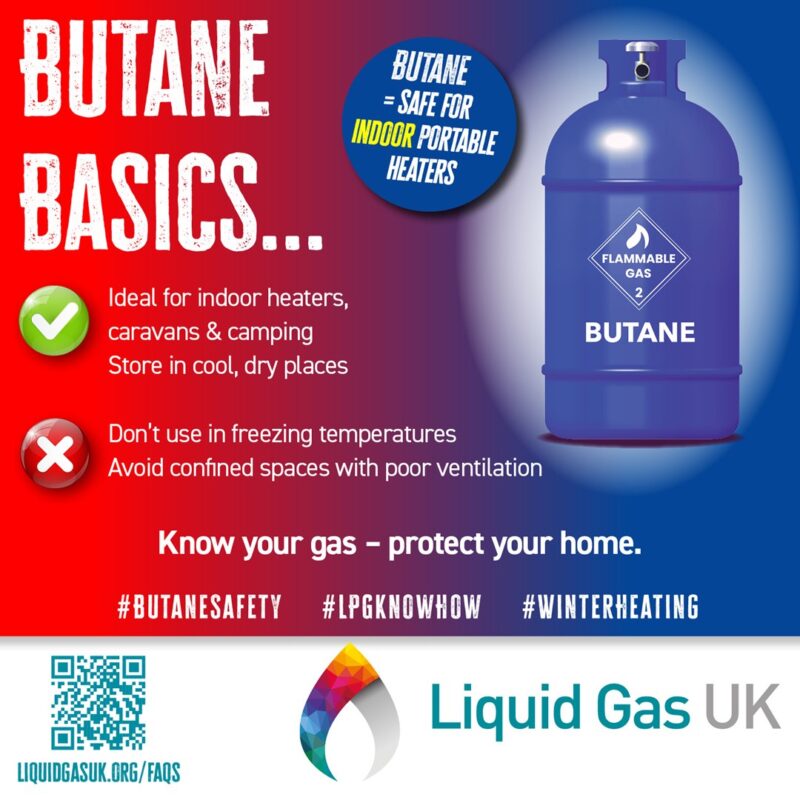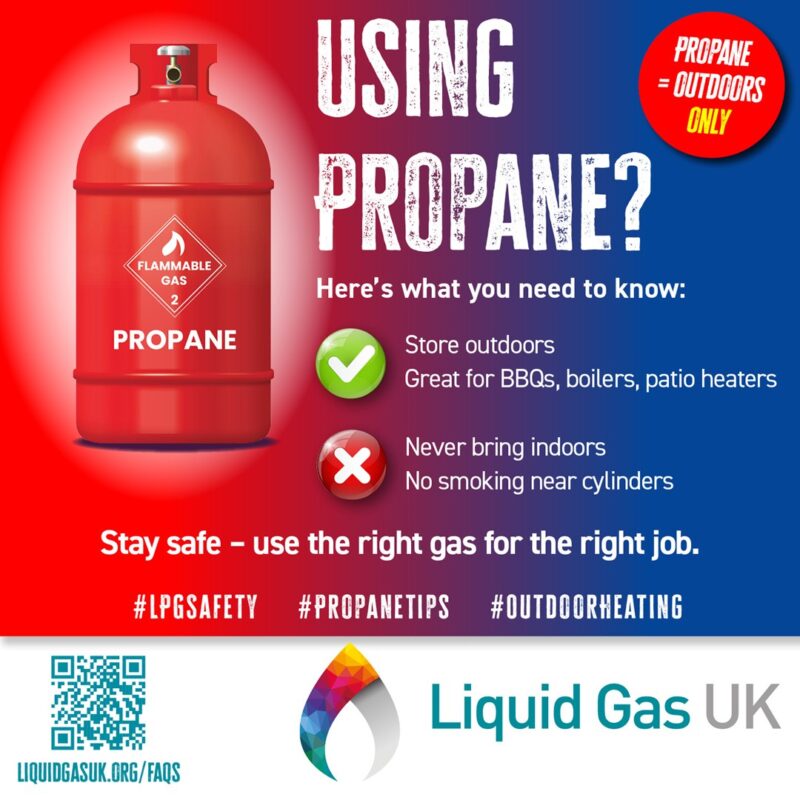Digital Food Safety System
Save time, reduce hassle and keep your business inspection-ready.
Both propane and butane cylinders are widely used for outdoor applications, including patio heaters, BBQs and portable stoves but it is essential to know which gas cylinder is safe for indoor versus outdoor use, especially as the use of indoor heaters increases during the cooler months.
George Webb, Chief Executive of Liquid Gas UK, explains: “Households need to take the opportunity to assess their needs before winter sets in. Knowing which cylinder to use and following proper safety guidelines is crucial to keeping families safe and warm this season.”
Propane must be used outdoors only. Using and storing propane cylinders indoors can cause significant safety risks, such as the possibility of fire hazards or explosions, and can contribute to poor air quality.
Butane, on the other hand, is safer for use indoors with portable heaters or appliances within caravans which are specifically designed to house the cylinders. It is important to follow the manufacturer’s instructions and ensure adequate ventilation when using butane indoors.

Mr Webb adds that cylinders are often colour coded; orange for propane and blue for butane; but this is not always the case. “Always check labels and don’t rely on gas bottle colour alone, as this may differ depending on the supplier “Propane and butane are both safe, reliable energy sources when used correctly – but confusing the two, or failing to follow basic guidance, can lead to unnecessary risks,” says Mr Webb.
For more safety guidance and answers to common questions visit 
About Liquid Gas UK
Liquid Gas UK is the trade association for the LPG and renewable liquid gases industry in the UK, representing a membership of companies who are LPG and renewable liquid gas producers, distributors, equipment manufacturers and service providers. Our member companies supply over 99% of the total LPG and 100% of bioLPG distributed in the UK marketplace.
Liquid Gas UK takes a leading role in liaising and consulting with UK Government and Devolved Administrations to shape policy with respect to the decarbonisation of heat, transport and industry. The association also takes a leading role in safety, and this is why Liquid Gas UK is a global trailblazer for Codes of Practice, setting high standards for the safe, progressive development and use of LPG and renewable liquid gases.

